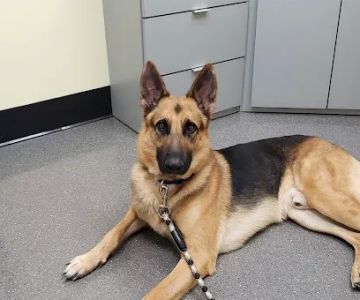What Do I Need to Become a Veterinarian? Essential Steps to Your Veterinary Career
Becoming a veterinarian is a rewarding and challenging journey that requires dedication, education, and passion for animal care. If you’re wondering what do I need to become a veterinarian, this comprehensive guide will walk you through the key requirements and steps to start your career in veterinary medicine.
1. Foundational Education and Academic Prerequisites
The path to becoming a veterinarian begins with a solid educational foundation. Aspiring vets typically need to complete a bachelor’s degree, often focusing on science-related majors such as biology, animal science, or chemistry. These majors provide critical knowledge in anatomy, physiology, and chemistry, which are essential for veterinary studies.
Many veterinary schools require specific prerequisite courses, including biology, organic chemistry, physics, and math. These classes prepare you for the rigors of veterinary school and help develop the analytical skills needed for diagnosing animal health issues.
2. Gaining Experience Through Internships and Volunteering
Hands-on experience is invaluable for anyone considering veterinary medicine. Volunteering at animal shelters, farms, or veterinary clinics provides practical insights into the daily life of a vet and strengthens your application to veterinary programs. For example, Sarah, an aspiring veterinarian, spent summers volunteering at a local animal hospital, where she learned how to assist vets during examinations and surgeries. This experience not only enriched her understanding but also confirmed her passion for the profession.
3. Veterinary School Admission and Coursework
After completing undergraduate requirements, the next step is to attend an accredited veterinary school. Admission is highly competitive and often requires a strong GPA, recommendation letters, and a successful score on the Veterinary College Admission Test (VCAT) or GRE.
Veterinary school typically lasts four years, during which students study advanced topics like animal pathology, pharmacology, surgery, and diagnostics. Clinical rotations in the final years offer real-world experience under the supervision of licensed veterinarians.
4. Licensing and Certification
Graduating from veterinary school is followed by obtaining a license to practice veterinary medicine. In the United States, this involves passing the North American Veterinary Licensing Examination (NAVLE). Some states may have additional requirements such as jurisprudence exams or background checks.
Continuing education is important to maintain licensure and keep up-to-date with advancements in veterinary medicine.
5. Developing Key Skills for Veterinary Success
Beyond education, becoming a successful veterinarian requires compassion, problem-solving skills, and the ability to communicate effectively with pet owners. Emotional resilience is also crucial as vets often face challenging situations involving animal health and welfare.
6. Career Opportunities and Specializations
Once licensed, veterinarians can choose various career paths including private practice, research, wildlife conservation, or specialized fields like surgery, dentistry, or exotic animal care. Pursuing specialization often requires additional training and certification.
7. Inspiring Real-Life Story
Consider Dr. Emily, who always dreamed of helping animals. After years of rigorous study and perseverance, she opened her own veterinary clinic. Dr. Emily emphasizes the importance of mentorship and encourages aspiring vets to seek guidance and stay committed. Her story is a testament to how dedication combined with proper education and experience leads to a fulfilling career.
8. Next Steps: Starting Your Veterinary Journey
If you’re asking yourself what do I need to become a veterinarian, start by focusing on your education and gaining practical experience. Research veterinary programs thoroughly, prepare for entrance exams, and immerse yourself in environments where you can learn about animal care firsthand.
For tailored guidance, educational resources, and recommendations on veterinary study materials, visit our trusted partner site, which can help you take the next step toward your dream of becoming a veterinarian.












